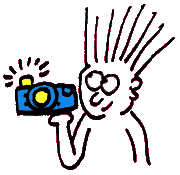Introduction
Nominations
Book Criteria
Author
Calendar
Sponsors
Book Clubs
Reader's Guide
Committee

Photo Gallary
|
2004 United We Read Read Alikes |
 |
| IF YOU LIKE ELIZABETH MOON’S SPEED OF DARK, YOU MIGHT ALSO TRY: Al Capone Does My Shirts By: Gennifer Choldenko It’s 1935 and twelve-year-old Moose Flanagan and family are moving to Alcatraz Island so that his father can accept a job as a prison guard and his autistic sister can attend a special school in San Francisco. Things are bleak until Moose meets the warden’s daughter, Piper, in this warm coming-of-age story should appeal not only to Young Adults but readers of all ages. Brave New World By: Aldous Huxley The 1932 classic with its emphasis on a “Utopia” with a rigidly controlled populace kept happy by “Feelies” (movies that inundate all the senses) and the drug soma might seem uncomfortably familiar. By the Light of the Moon By: Dean Koontz. At an Arizona motel, Dylan O’Connor, an artist, Jilly Jackson, a comic, and Dylan’s high-functioning autistic brother Shep are injected by an evil scientist with nanobots that cause strange and wonderful reactions in the trio, and they have twenty-four hours to work everything out. Interesting to see the spin suspense writer Koontz gives the topic of autism. Curious Incident of the Dog in the Night-time: A Novel By: Mark Haddon The story of a fifteen-year-old autistic math wiz who sets out to investigate the death of a neighbor’s dog, this 2003 debut novel has been a publishing sensation. Its portrayal of its autistic main character might be usefully compared with that of Lou in Speed of Dark. Flowers for Algernon By: Daniel Keyes A 1966 Nebula winner, this novel tells the story of Charlie Gordon, a mentally retarded adult who takes part in an experiment to increase intelligence that’s been remarkably successful on a lab mouse named Algernon. The change has profound effects on Charlie, especially after the mouse begins losing its newfound powers. Another title that might fruitfully be read in conjunction with The Speed of Dark. Follow the Stars Home By: Luanne Rice Dianne Robbins is abandoned by her husband just after he learns that their daughter will be born with spina bifida and Rett syndrome, an autistic-like condition. Dianne is lucky enough to find a support network that allows her to cherish her daughter in this tender and poignant story of mutual love. Pleasure of My Company By: Steve Martin. Stand-up comic Martin here tells of Daniel Pecan Cambridge who is a nexus of phobias and obsessions. When he is thrust into the lives of a mother and her son, he finds that his phobias give way in the face of the needs of his new friends in a story that is both comic and heartfelt. Pursuit of Perfection: The Promise and Perils of Medical Enhancement B: y Sheila Rothman and David Rothman. A balanced view of the morality and threats implicit in medical procedures that are a standard part of medicine today: liposuction, anti-aging procedures, growth hormone infusions. A provocative look at where science, medicine, and commerce meet. Through the Glass Wall: Journeys Into the Closed-Off Worlds of the Autistic By: Howard Buten Buten has training as both a clinical psychologist and a mime, and combines both interests in his very practical treatment of autism. He uses mimicry to breach “the glass wall” that separates the autistic from others. In this readable account he reports on his successes, and failures. Tilt By: Elizabeth Burns A whirlwind courtship lands Bridget Fox in a marriage to a manic-depressive sculptor. When her daughter is diagnosed as autistic, Bridget has to learn to cope, and the daughter’s condition is rendered in witty but entirely convincing details that keep this from being the weep-fest it could have been. Why Does Chris Do That?: Some Suggestions Regarding the Cause and Management of the Unusual Behaviour of Children and Adults with Autism and Asperger Syndrome By: Tony Attwood. The latest edition (2003) translates scientific research and experimentation into practical and readable advice for parents and caregivers about why those with autism and related conditions behave the way they do, and suggests ways in which that behavior can be influenced. |
|
|
For further information contact: Kansas City Metropolitan Library & Information Network 15624 E. 24 Highway Independence, MO 64050 Phone: (816) 521-7257 Fax: (816) 461-0966 Email: sburton@kcmlin.org Last Updated 6/7/04 |